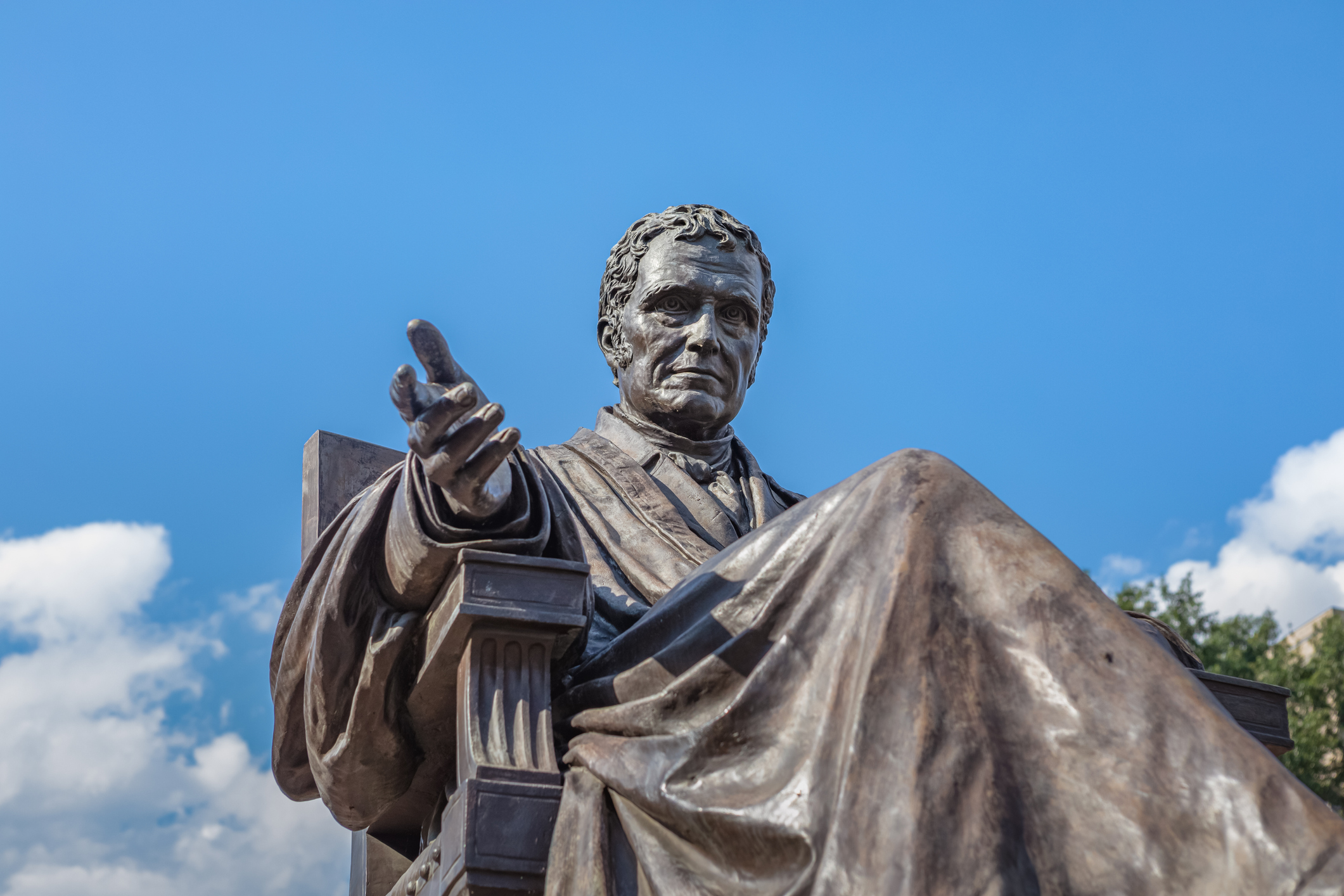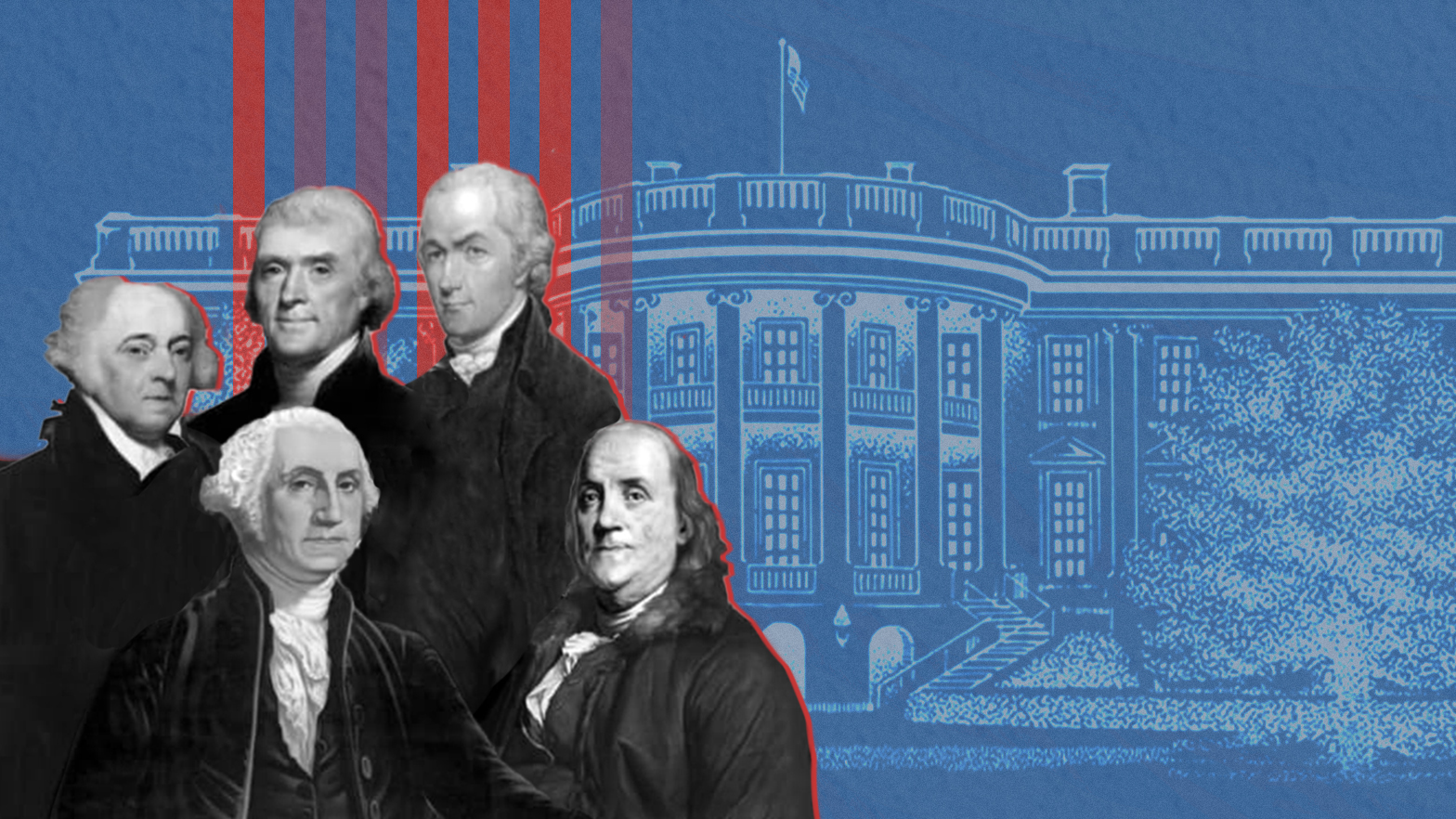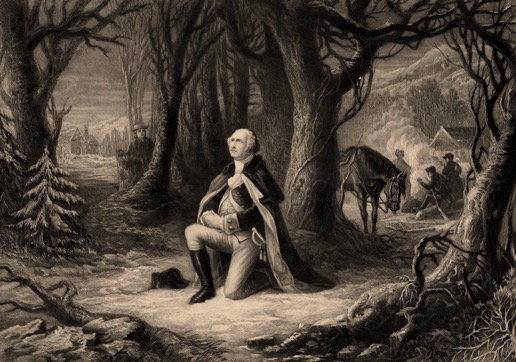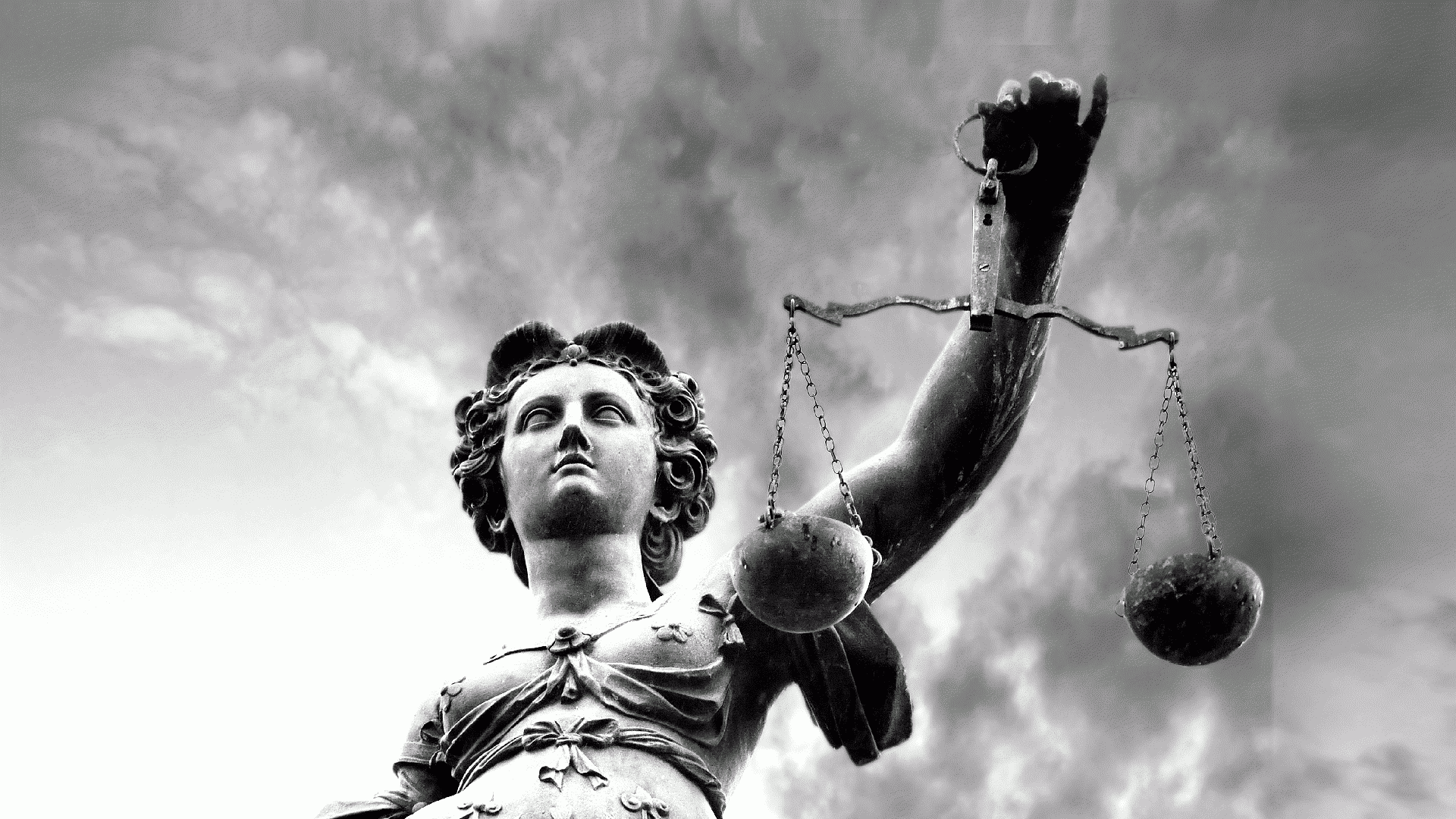Great nations need and deserve great leadership.
Cancelling History

At what point does the Revolution swallow itself?
Middlebury College, the highly-ranked Vermont school which made national news when students blocked social scientist Charles Murray from speaking because of his heterodox views on racial issues, and physically assaulted the professor who had invited him, is now being sued by representatives of the estate of John Mead, a deceased former governor of the Green Mountain State. The estate claims that that the college breached its contract with Mead’s estate in 2021 when it removed his family name from the campus chapel, which was a precondition of the money originally being donated to build the chapel.
Mead (1841-1920) was a physician and businessman who served as governor from 1910 to 1912, having interrupted his studies at Middlebury in 1862-63 to serve in the Union Army. He made substantial donations to Middlebury, including the financing of its eponymous chapel, constructed in 1916. The reason given for removing his name from the chapel is the discovery that he had advocated the sterilization of “degenerates and defectives” over a century ago.
Responding to the suit, Middlebury’s lawyers not only deny that the gift of the chapel was predicated on preserving the original name, but also assert that the College has a duty to “grow” with the times, including in its choice of honorees. Elsewhere, as reported in the Wall Street Journal, in 2022 descendants of benefactors of at least two other schools made complaints similar to those of the Mead heirs—one against the state of California for changing the name of the Hastings College of Law (because Hastings had been “involved in the slayings of hundreds of Native Americans” in the nineteenth century, presumably in territorial battles) and another against the University of Richmond for renaming the T.C. Williams Law School (because Williams had owned slaves).
How far have the institutions in question thought through the implications of their actions? If Williams’s name needed to be removed from a law school because he owned slaves, the same principle would require removing the names of such founding fathers as Washington, Jefferson, and Madison from all sorts of institutions, street names, and even the names of cities, including the nation’s capital. (Of course, all three of those statesmen made clear their view that slavery was an unjust institution which should be abolished, with Jefferson asserting in the Declaration of Independence the principle of men’s equal right to freedom, as well as what became the Northwest Ordinance’s prohibition of slavery.)
In the case of Middlebury, the movement for mandatory sterilization during the early decades of the twentieth century was indeed an evil enterprise, especially in retrospect, since it may have helped inspire some of Adolf Hitler’s most terrible deeds. But as Thomas Leonard observes in his 2016 book Illiberal Reformers: Race, Eugenics, and American Economics in the Progressive Era, the sterilization movement (epitomized in Oliver Wendell Holmes Jr.’s infamous dictum in Buck v. Bell [1927], upholding Virginia’s sterilization law, that “three generations of imbeciles are enough”) was once thought to exemplify the latest findings of “science.” Notably, the progressive icon Margaret Sanger, founder of Planned Parenthood, espoused a “Negro Project” and spoke to a Ku Klux Klan chapter about the need for a eugenic approach to human breeding that would enable “eventual extinction of defective stocks…which threaten the blooming of the finest flowers of American civilization.” Other advocates of eugenics on the political Left included George Bernard Shaw and British socialist intellectuals Sidney and Beatrice Webb.
The predominant advocates of eugenics were progressive social scientists, including the founders of the academic disciplines of economics, sociology, and political science, along with (Leonard notes) “pioneering social work professionals,” advocates of the Protestant “social gospel,” and university presidents like Stanford’s David Starr Jordan, all of whom advocated exclusionary labor and immigration policies designed to prevent non-Anglo-Saxons from competing in labor markets, lest they lower prevailing wages. (Minimum-wage laws were aimed at preventing black migrants from the South from undercutting Northern factory wages.) As Leonard puts it, Darwinism “offered Progressivism a conceptual scheme capable of accommodating the great contradiction” between its views of the poor “as victims deserving state uplift and as threats requiring state restraint.”
What should we learn from these facts? In 1926, Calvin Coolidge, a Vermont native and one of our most underrated presidents, delivered an address commemorating the 150th anniversary of the Declaration of Independence. His presidency was sandwiched between the administrations of the two leading Progressive chief executives of the first half of the twentieth century (Wilson and Franklin Roosevelt). Coolidge, by contrast, emphasized the Declaration’s “finality.” In answer to those who attributed America’s success to “new thoughts and new experiences,” therefore justifying the replacement of the Declaration’s political conclusions with “something more modern,” Coolidge argued,
that reasoning cannot be applied to this great charter. If all men are created equal, that is final. If they are endowed with inalienable rights, that is final. If governments derive their just powers from the consent of the governed, that is final. No advance, no progress can be made beyond these propositions. If anyone wishes to deny their truth or their soundness, the only direction in which he can proceed historically is not forward, but backward toward the time when there was no equality, no rights of the individual, no rule of the people.
In the sequel, Coolidge, a man of considerable classical learning, praised not only the Declaration’s principles but the constitutional devices such as popular representation, federalism, separation of powers, and checks and balances by which the founders aimed to effectuate them. While Americans of the twentieth century “live[d] in an age of science and of abounding accumulation of material things,” he observed, “[t]hese did not create our Declaration. Our Declaration created them” through such means as the protection of property rights (often brought into question by the Progressives) and the preservation of religious liberty and the belief that respect for the rights of all individuals was grounded in the teachings of the Bible.
Another New England-related statement that bears mention in this connection is the great Chief Justice John Marshall’s opinion in Dartmouth College v. Woodward (1819). In that ruling, Marshall gave a broad reading to the Constitution’s prohibition on the impairment of contractual obligations by a state, applying it to the attempt by the New Hampshire legislature to violate the charter that Dartmouth had originally been granted by George III, by reinstating its deposed president and assigning the authority to fill College positions to the governor (along with adding members to the board of trustees and creating a board of overseers with veto power over trustee decisions). In his decision Marshall treated the issuance of a royal charter to the College as still binding. He denied the fact that since the college’s charter had been issued by government, the school was transformed into a merely civil institution, subject to whatever regulation political authorities deemed appropriate. (A comparable practice today would be the federal government’s use of Pell grants as entailing the authority to regulate the practices of private and public colleges—hence Hillsdale College’s noteworthy practice of refusing all such government aid, lest public assistance turn into public control.)
Much more was at stake in Marshall’s opinion than guaranteeing the right of a college, even a publicly chartered one, to govern itself in accordance with the terms of its charter. Rather, he was endeavoring to teach state governments the necessity of respecting the terms of all legally established charters—among private citizens and corporations as well as with governmental bodies—so as to ensure trust in the sanctity of the rule of law. Such assurance, like confidence in the federal government’s fulfilling the obligation to maintain the “full faith and credit” of the public debt, was the precondition of promoting both commercial activity and—in the present cases—the practice of philanthropy.
Coolidge, Marshall, and the authors of our Declaration and Constitution had it right. Today’s progressives, for whom written guarantees have no meaning if they seem out of date, are wrong. Both our prosperity and our liberty depend, as Coolidge observes, on adherence to the rule of law and the Constitution as well as the timeless principles stated in the Declaration. Those who sought to enforce eugenic policies had no less confidence in the superiority of their “scientific” doctrines to those of the founders than today’s progressives do in theirs. Neither group rivaled the wisdom of America’s founders, who have been vindicated by the historical record.
The American Mind presents a range of perspectives. Views are writers’ own and do not necessarily represent those of The Claremont Institute.
The American Mind is a publication of the Claremont Institute, a non-profit 501(c)(3) organization, dedicated to restoring the principles of the American Founding to their rightful, preeminent authority in our national life. Interested in supporting our work? Gifts to the Claremont Institute are tax-deductible.
When it comes to riots, that may depend on which side you're on.
Lawfare threatens to destroy our constitutional republic.
Wokeism is the essence of anarchy.
A response to C. Bradley Thompson.






